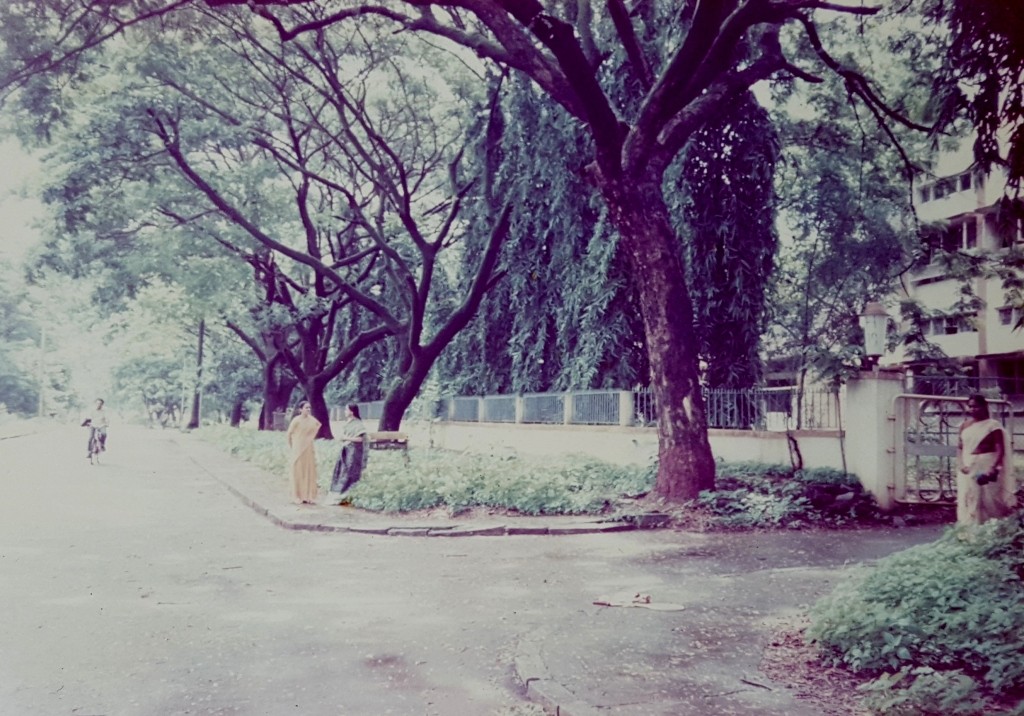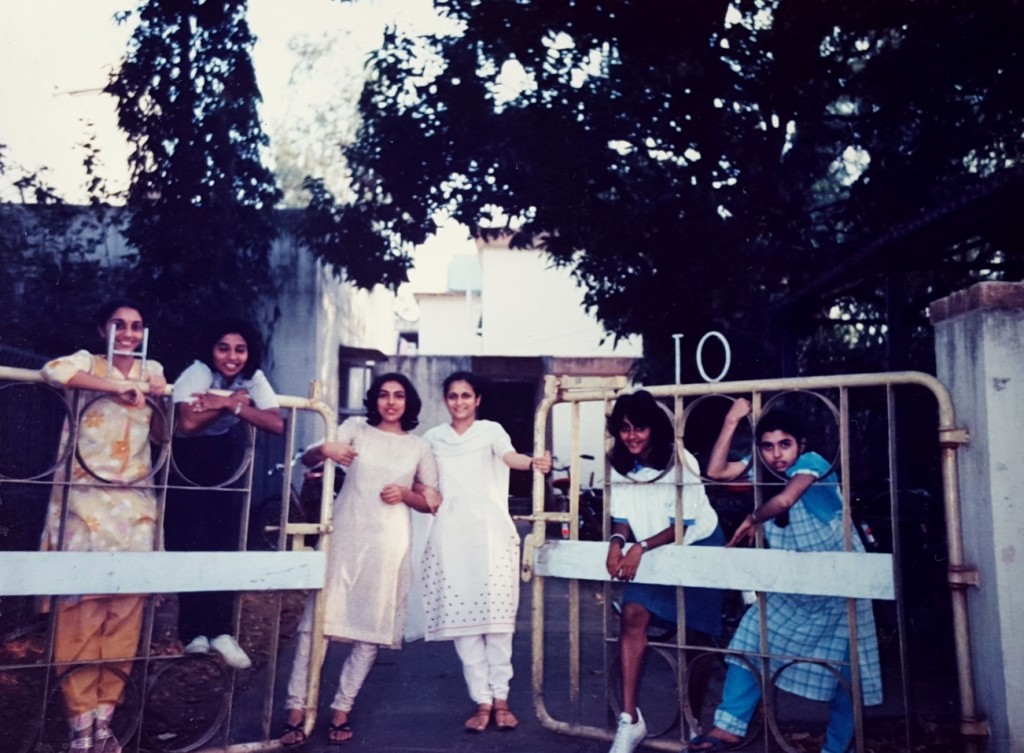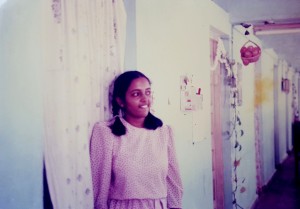The month I turned twenty, I packed my bags to move to IIT to begin my Masters. At the main gate, a pleasant young man offered to carry my bags as the hostel was “some distance away”. No man was going to carry the suitcase of a young feminist, so I declined the offer. “Suit yourself” he said cheerfully, and walked on. So began my IIT residence, which lasted a couple of years longer than I had intended it to.
The hostel was indeed some distance away and it turned out to be a low structure shrouded in green cover. I was allotted a room in one of the fresher wings and found myself in a little room furnished with a cot, a mattress and a study table. But at that moment I sat on my bed and, despite being the product of a very liberal home, savoured the beginning of my absolute freedom.
In view of the low number of undergraduate girls – a situation that has changed now I gather – Hostel Ten tended to have a greater mix of undergraduates and postgraduates than any other hostel. The boundaries between the two were therefore far more blurred than in the boys hostels though, it is said that sometimes, a 16 year old and a 21 year old inhabit entirely different worlds. Most postgraduates arrived as young women; the undergraduates were young girls who would go on to be vastly shaped by their four year residence.
In the first year, at least, your wing was likely to have a sizeable number of undergraduates; this was the case for me too. The bunch in my wing was a boisterous lot and struck up instant friendships. The problems they faced were entirely different from ours and it was instructive to watch their struggle with large classes, grades and boys. Nothing too different from the concerns of an average adolescent girl, except that more than a few were far from home and everything they had known. Some revelled in this life, others moped. The locals disappeared on the weekend and returned with food and washed laundry.
Speaking of laundry, three of the undergraduate girls in my wing stationed a bucket of clothes in the wing and took turns in picking a daily “outfit” from it until someone took pity on them and engaged a woman to wash and press their clothes. And, speaking of food, nothing was looked forward to more than the return of a girl. A few of my friends had exceptionally kind mothers who kept us supplied with delicacies all through our student life. The appetites of young women are ravenous.
Some revelled in this life, others moped. The locals disappeared on the weekend and returned with food and washed laundry.
The Hostel Ten mess had a bit of a reputation for being one of the better messes (read ‘food was edible’). If you made a male friend, his acceptance as a H10 man could only be sealed by having a meal at the Hostel. The meals themselves were run of the mill and interrupted by a special day of “Chinese” and ice cream as well as a Sunday lunch. But, more than the meals, it was the akshaypatra of strong, hot tea that facilitated idleness, friendships and romances. The steel cups, with a void space that were ubiquitous in middle class India of the 80s, shone in regular lines and they and the tea were replenished regularly. In the matter of tea, the femme-formidables who managed the kitchen were generous. If we arrived late, they were always happy to brew up a bit more.
I managed the Mess for a year and there are few jobs more thankless than it. The nexus of the mess management and staff is hard to break. The ladies who ran the kitchen had been there for a long time and a small girl passing through officiously for a year was hardly likely to deter them. In the interests of transparency, we also decided to make the breakdown of the mess bills public which led to an EGBM with an epic showdown – I can still picture the Warden looking faintly bemused by the proceedings. Much later, when I found that a mess co-ordinator of a boys hostel had bought a motorcycle by his judicious management of mess and canteen, I thought, “Well I might as well stick Ms. Stupid on my forehead at this point”. Joke! But the most rewarding outcome of that year was knowing the mess staff. A number of them had been there for years and came from tough backgrounds. I found it hard to grudge them their obduracy, their surliness and their pilfering. Some of the younger ones were lovely; despite the nature of their chores they maintained good cheer and now and then got us tiny eats from home. Illness claimed them at a young age, and I still feel a little sorrow when I look at their children. On the plus side, the Hostel Ten canteen was started by us and watching its progress gave us a lot of happiness.
Apart from the Mess and the simple rubbing together of daily life, the number of activities in the Institute brought together both the UG and PG girls. Hostel Ten was always a bit coveted for the PAFs – though this did not always mean that they took first prize. For a month or so the hostel would see feverish activity – and a boy influx – until we would see the girls on stage, mostly lovely and talented. The more intimate Valedictory Function tended to be a bit of a riot given that it was mostly in-house and a send-off. I can’t set down the exact specifics, but let’s just say that I both laughed and cried really hard. In the summers, there would be few of us around and this bound us together even more. The heat, the late spring flowers and long night walks – these were what made my most intimate friendships.
Hostel Ten was always a bit coveted for the PAFs – though this did not always mean that they took first prize. For a month or so the hostel would see feverish activity – and a boy influx – until we would see the girls on stage, mostly lovely and talented.”
One thing that absolutely divided the UG and PG populations even in Hostel Ten was academics. First up, there was the mystique of the B.Tech degree from IIT, a holy grail for the Indian middle class child. Secondly, few women were encouraged to pursue Engineering; fewer still made it to IIT’s portals. The postgraduates, on the other hand, were in courses that did not have skewed gender ratios. An MSc Chemistry class, for example, had a number of girl students. Whether this made any difference – that is not for me to say. But B Tech classes are an exceptional situation.
To me, at the time, IIT was an unusual situation. It wasn’t unpleasant; indeed more than a few close male friends are from my years there. Yet, going to meet my brother at his hostel or a friend at his would bring about a certain consciousness if you will. Sometimes, events like a Pagal Gymkhana on which we penned a fiery piece which provoked much comment or the response to the bolder girls in the Hostel were evidence that an overwhelmingly male population produces a certain culture. I do not mean to say that this is any way inimical or threatening. In fact, the mix of chivalry and nonchalance of the first boy I met in IIT is fairly typical of the boys of the Institute (Note: I never met him again). But the feeling of being very few in the midst of many marks the IIT experience and sets it apart from other educational institutions.
Staying in a hostel results in lifelong bonds. Sneaking in a beer and indulging in dirty talk at 2 am in the Hostel wing can do that.”
But within the Hostel one was insulated from all this. Staying in a hostel results in lifelong bonds. Sneaking in a beer and indulging in dirty talk at 2 am in the Hostel wing can do that. As can a whole load of silliness and hilarity over small matters. Or weeping over spoilt exams and spoilt romances! Or running up a bonfire and making tea at 2 am – really a LOT happened at 2 am. Or being forced to stick to a study schedule by your more studious counterparts. Or residing in a wing luxuriant with ferns and the earth mother warmth of the older PhD students. Even the sorrow of having one of your own taking her life – all of this marked my years in Hostel ten.
I spent a very long time in IIT Bombay and it took me awhile to come back once I left. But never once did I feel the same way about the Hostel. It remained my happy place, and I feel a curious sense of loss to think of it torn down –as if age had overtaken me and a new world had shaped itself before I knew the old had passed.
In the old courtyard of Hostel Ten, tulsi grew wild like a weed. My grandmother, whose tulsi struggled in a little pot, would look at it wistfully and say perhaps it grows so much because Saraswati resides here in all these girls.”
In the old courtyard of Hostel Ten, tulsi grew wild like a weed. My grandmother, whose tulsi struggled in a little pot, would look at it wistfully and say perhaps it grows so much because Saraswati resides here in all these girls. And it is true that IIT is primarily a place of academics. But that wild, bold growth was also me and many others I knew. I entered IIT as a sheltered and pampered girl vaguely desirous of freedom; I left it as a grown person who had found her own voice. This, I owe to the Institute! But even more so, I owe the woman I am to Hostel Ten. And to the girls I met there and who are still an integral part of my life.



3 comments
wow! Thanks Anu for sharing your memories, especially of H10. I was there almost 12 years after you left and I am sure the hostel was a different place than what it had been when you were there.. we could sense the changes from the stories the final year students told us and the stories they heard when they were freshers. It still was my ‘happy place’ and I too join you in your sense of loss when I heard it was taken down. 🙁
love,
ashima
NIce Read !
Very good read, Anuradha.